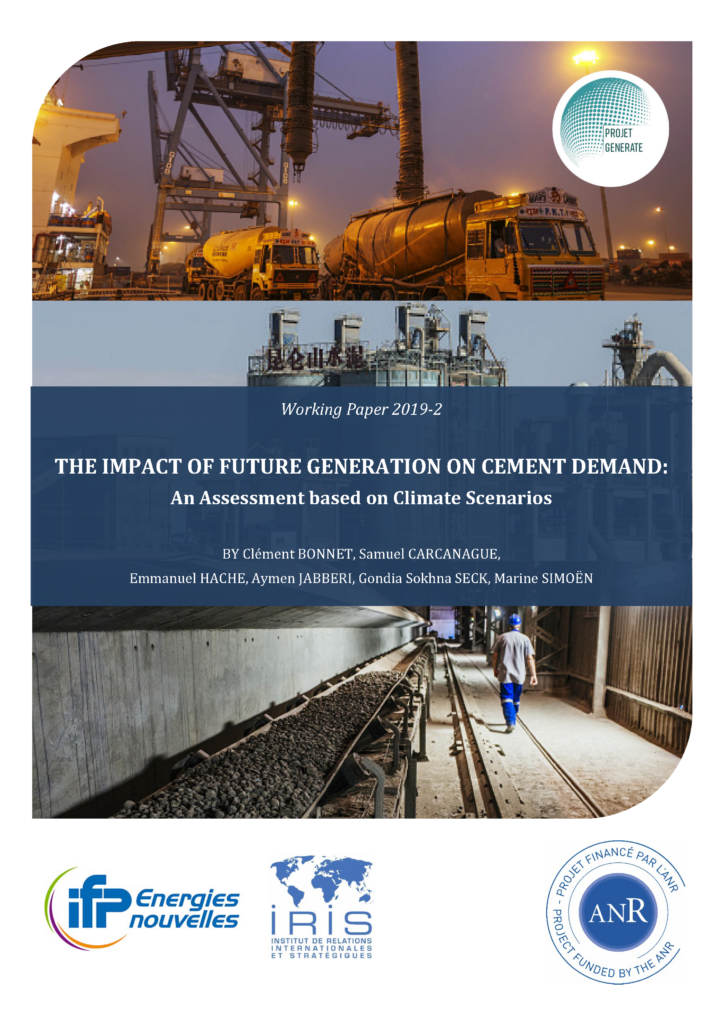Notes / Énergie et matières premières
16 janvier 2019
The Impact of Future Generation on Cement Demand: an Assessment based on Climate Scenarios

Concrete is the most widely used manmade material in the world with an annual production of about 10 billion tons at the global level. It outpaces the use of historically important materials such as wood or stone in modern urbanism. Concrete is tightly linked to the energy transition. On one hand, as a structural material, concrete is used in multiple sectors among which the energy sector. Because the concrete content of a power plant may vary depending on the technology, the energy transition is expected to impact the future demand for concrete. On the other hand, concrete production is known to highly pollute the environment as one of its major components is cement, whose industry is one of the main emitters of carbon dioxide in the world. This dual aspect explains the aim of this study of understanding concrete (and therefore cement) demand under energy transition policies described in the 2017 IEA’s Energy Transition Policy (ETP) report and quantifying CO2 emissions stemming from cement production for the energy sector. Based on a simple model the study is conducted at the global and regional levels to take into account potential local disparities. The results demonstrate that the decarbonisation of the electricity sector will have a limited impact on the global cement demand , but that could be more challenging for some regions where new electricity mix require large concrete structures.
This model could be a useful decision-making tool for assessing the relative impact of any public energy transition scenarios on raw materials, such as cement, at the highest level of disaggregation, as well as a better sub-sectorial screening.
Keywords: Energy transition, concrete, cement, power production, construction materials
JEL Classification: Q42, Q51, Q53
This article received the financial support of the French National Research Agency (ANR) and is part of the GENERATE (Renewable Energies Geopolitics and Future Studies on Energy Transition) Project.




